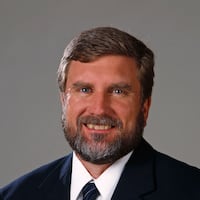The committee’s first step is to plan 12 “listening sessions” with the public, some tied to specific areas of the city, others to topics such as charter schools, immigrant communities and pre-kindergarten efforts.
That schedule is a work in progress, but Whaley said the plan is to hold all 12 sessions in the next three months, likely starting in late March. Whaley and some committee members will attend each of those meetings, trying to learn what residents see as existing strengths, as well as obstacles to high performance.
“The number that drives me on this issue, is that by 2018, two out of three jobs will require some type of post-high school credential. … And we know that we are way behind on that issue,” Whaley said. “We’re investing now because we know what works to move the needle, but it’s going to take time, and take all of us working together, to make sure we get there.”
That concept of a large group working in concert was a repeated focus of the meeting. Representatives of public, Catholic, pre-kindergarten and charter school groups presented examples of good work they’re already doing.
University of Dayton professor Tom Lasley, executive director of Dayton’s Learn to Earn effort, said research shows that the communities that improve education are those that align their efforts together to achieve “collective impact.”
“The communities where everybody worked together toward common goals, had (positive results),” Lasley said. “Communities where everybody was doing a great job but were focused only on their own interest flatlined.”
One of the likely focus areas for the City of Learners Committee — matching the Learn to Earn effort — will be early-childhood education. Robyn Lightcap, director of the ReadySetSoar kindergarten readiness group, pointed to a key parallel.
She said data from Dayton Public Schools shows that just more than 20 percent of the district’s new kindergarten students test as being fully ready for kindergarten when they start. That matches the roughly 20 percent of DPS students who earn a college degree or post-high school credential over a decade later.
“It is no coincidence that those numbers are the same,” Lightcap said.
The meeting drew prominent attorneys, school board members, church leaders, social service providers and university presidents. Their reasons for getting involved ranged from improving opportunities for low-income kids, to building the future workforce, to simply honoring a request from the mayor. Whaley said the committee will eventually settle on 3 to 5 specific plans that the city can launch to improve education for children in the city.
Three school principals or presidents addressed the committee, with Channey Goode of Dayton Leadership Academy talking about the basic, but crucial issue of increasing attendance. Part of his charter school’s success has been pushing for more parent or guardian involvement.
“We understand that the only way we could be able to change the culture of our school was by engaging the parents,” Goode said.
About the Author
